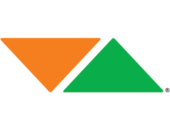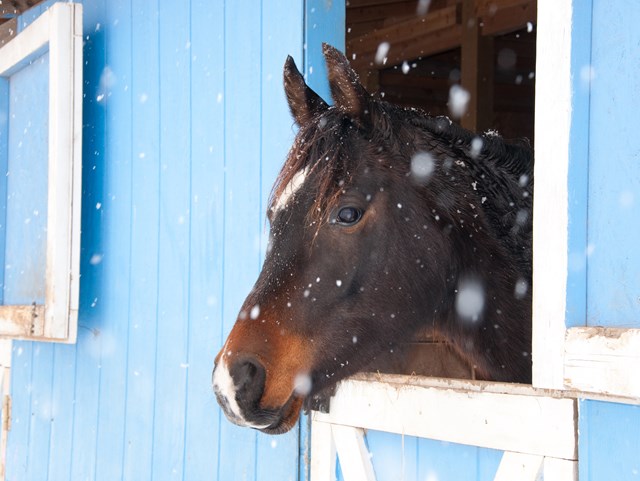As we get into the heart of fall, it’s time to start preparing for the upcoming winter. Hi-Pro Feeds took a few minutes to ask Dr. Morrow about how caring for horses changes during those colder months.
Dr. Morrow, how does caring for a horse change in the winter? What are the extra things that horse owners need to look out for with the seasonal weather?
Winter conditions will require that our horses have access to shelter and a clean available water source. Blanketing of horses has been popular for some time but in most instances is not necessary if they are kept dry and out of the wind.
It’s important to make sure they are drinking, and drinking goes hand in hand with eating. Studies show that if you make water available before you feed, your horses will eat more. Most people feed first and then break water, but you should be doing the opposite. Additionally, water sources should be free of ice and, if possible, warm.
Caloric needs will also increase as there will be more metabolic stress in the production of heat to maintain body temperatures. Feedstuffs that are more easily digestible, have smaller particles, and less dust are best for the winter.
In short, shelter, warm water and a digestible energy source are the basics of winter care.
Are there seasonal health issues that can affect horses in winter?
Seasonally, respiratory diseases come with environmental stressors and moving indoors. Summer horses stay with trailers, winter horses are kept indoors so they are tied to a fence, nose to nose, often under sweaty blankets. Added in to that is dust coming up from the stall floor, and more dust coming from the hay. Even the best hay carries dust and mold with it.
Also, impaction colics are more prevalent with the weather change, especially if the water is allowed to freeze and horses are on round bales of grass hay. This is at least partly due to the fact they are eating more to maintain homeostasis but may not have the ability to drink water. Horse owners need to be more vigilant, especially in the fall and spring as the weather is transitioning. Be proactive, know how much water your horse is drinking, don’t just rely on the automatic waterers. Also, add diamond yeast and some salt to the feed. Alfa-Pro already has salt in the ration, and the reason for that is the saltiness encourages the horse to drink water. Diamond yeast helps with hindgut digestion.
Alfa Pro is a great feed for this time of year, as it solves a lot of those problems. In addition to already containing salt, it’s a chopped alfalfa pellet. Not only is it a hay substitute but also a complete feed that breaks down very easily. No blister beetles, easy to haul, and no dust.
What can the average horse owner do to prevent these issues from occurring?
Clean water, digestible feeds, shelter and exercise will remedy the biggest issues horse owners will encounter. More than that, however, husbandry is the cornerstone of any health program. We all need to take the time to learn about the horses in our care. Don’t just dump feed over the fence. You should spend the time to understand their personality. This makes them happy, and makes you a better team. It’s more than just providing food water and shelter. The interactions make it worthwhile, and inform the personality of the animal. Then, the better we know our animals, the sooner we will recognize when something is wrong.
Hi-Pro Feeds would like to thank Dr. Morrow for taking the time to help educate us and our customers on equine winter health issues. For more information on Dr. Morrow, visit his website. Click here if you’d like to check out Alfa-Pro.

